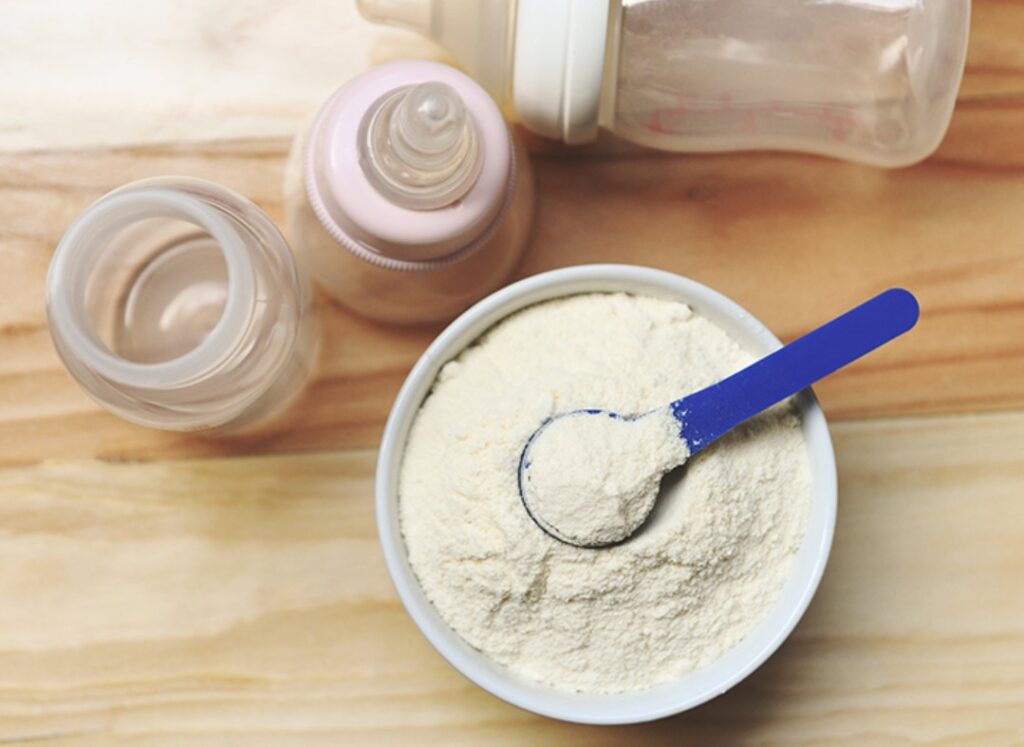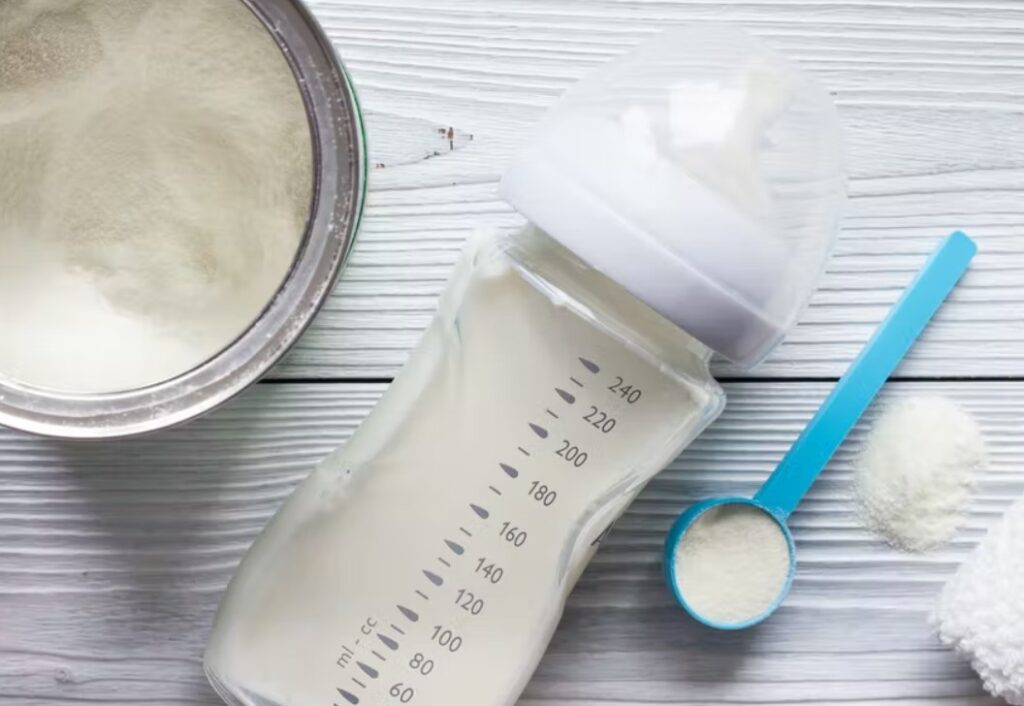New parents are often unsure about how to supplement breastmilk with baby formula or to make an entire switch. It becomes important to do away with all the misinformation and myths related to baby formula and find whether or not it is good for your baby. In this article, we will be dealing with one of the most common questions related to baby formula.
Many parents will also have the question about when do babies stop drinking formula. If you need to understand how frequently baby formula should be fed to a newborn and whether or not it has any side effects, just read on to find out.
What does Baby Formula do?

Let us tackle the most common question first. There is still a lot of stigma around the baby formula, which needs to be done away with by understanding what exactly it does. The baby formula works exactly like breastmilk and provides all the necessary nutrients.
Since it is used as a substitute for breast milk, it is recommended by doctors to mothers who cannot produce enough milk supply. Apart from being recommended for medical necessity, baby formula is also being chosen by mothers who have to resume work or simply out of convenience.
What is Supplementing?
Supplementing is the process of alternating the baby’s feeding time between breast milk and baby formula. The child is fed both of these in an alternating manner. Supplementing essentially is done by mothers who do not have enough milk supply or have multiple children that they need to breastfeed.
Other times, new mothers cannot find compatibility with their child enough to breastfeed. Supplementing is used as an alternative to simply feeding breast milk to the baby without making the child dependent on either one of them.
The introduction of baby formula in supplementing is done slowly without building a reliance on the new product. The frequency of feeding baby formula will matter the most in the days when it is being introduced to the child.
Complete Reliance on Baby Formula

Sometimes parents have to switch entirely to baby formula because breast milk does not work for some reason. You need to understand that in case you do need to make the switch to formula, it will not be detrimental to the health of the baby.
The idea behind using organic infant formula is to give your child nutrients that they are not able to get otherwise. Try to make the process as comfortable as possible for both you and your child. Have physical contact and eye contact during the feeding sessions, and make sure to switch sides from time to time as you would while feeding normally.
How Often Should a Baby Have Formula?
The frequency of having formula will be dependent on how old your baby is and their eating habits. There is an average expectation that you can follow to understand whether the feeding pattern is healthy or not. Here are some details:
Initial Days

Since we are talking exclusively about feeding formula, the process will start at the beginning. A newborn will not be able to have a lot of food because of its size. In the initial days, if all that you are feeding your baby is ounces of feed, you are doing more than enough.
The child will be slow to the process of finding themselves, so be ready for 2 hours sessions every two to three hours. Just because the normal intake is two ounces does not mean that you cannot give the child more if they seem hungry. For a newborn, expect the feeding time to be anywhere between 8 to 13 times per day.
Initial Weeks
After the first few days are through, you will be entering into the first weeks and months of your child’s life. The frequency of feeding will change depending on their eating habits and how they respond to hunger. A newborn is more dependent on frequent feedings because they do not retain a lot of food.
As the child grows older, they are able to maximize the gap in between feedings. You can expect the feeding time to last as long as a couple of hours, but the gap will increase to at least three or four hours. Just make sure you are allowing your child enough time to fill up their stomach with each feeding. If your child were not full the last time, they would require more frequent feedings.
After Six Months

The typical switch from baby formula to solid foods happens sometime after six months. You can start introducing solid food into the diet of the child but make sure not to stop feeding them formula altogether. You will have to make the switch from formula to solid food in a more balanced manner.
Start weaning off a child from the formula by introducing solid food every once in a while. Try to give the reactions to solid foods and increase or decrease the frequency accordingly. Once you see that your child is able to satisfy their hunger entirely with solid foods, you can do away with baby formula.
After One Year
When the child reaches the age of 12 months, they will be able to stomach and digest solid foods without any difficulty. If you have not done it already, it is time for you to make the switch from formula to other milk alternatives like dairy or oat milk.
The Takeaway
Just as you saw, there is no need to worry about how frequently your child is feeding as long as you see that their hunger is satisfied. Formula entirely replaces milk, so it will have to be fed as frequently as milk would be fed.
In case you do notice any irregularities, it is completely fine to consult a pediatrician. Be open to research and make sure you are making your comfortable with the process of introducing and weaning off the formula as and when required,

